The 10,000 Mile Journey to Orthodoxy
Why I Left Atheism and Roman Catholicism to Become Orthodox Christian
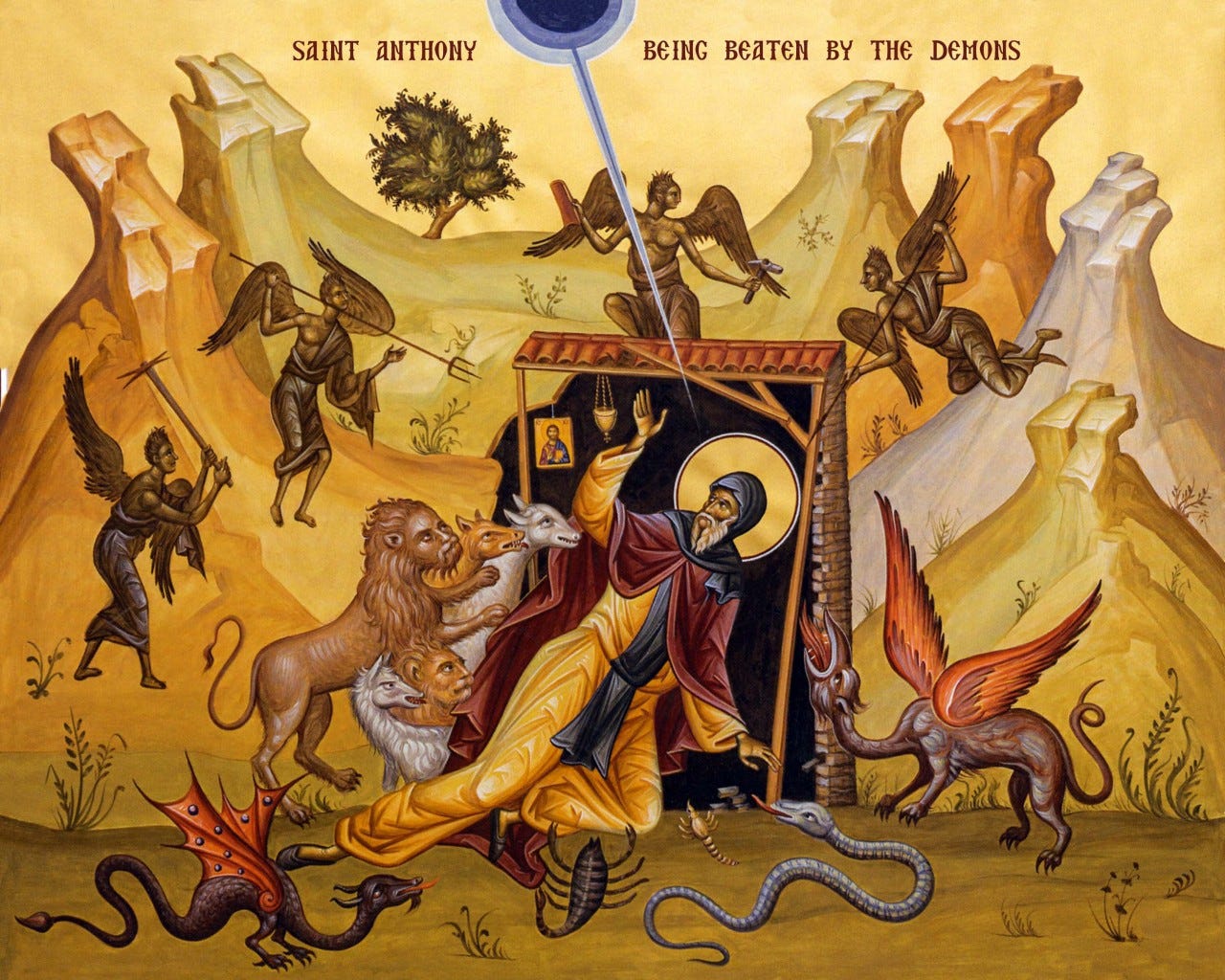
During my personal journey out of materialistic atheism, I searched for the perennially-true philosophy and ended up joining the Roman Catholic Church, with a specific fondness for “Byzantine” (Orthodox-style) Catholicism. After five years of spiritual growth, inquiry, and exploration within the world of Roman Catholicism — for which I am grateful — I ended up making the difficult decision to join the Orthodox Catholic Church, and was baptized and chrismated in the Russian Orthodox Church Outside of Russia (ROCOR). I had not been actively seeking to convert, but I was compelled by my conscience to do so after studying the history of the first millennium church.
I hesitated on writing this essay for a long time, as I knew that it would involve theological discussions that might stir up controversy and anger from those who love Roman Catholicism and the Papacy. But with love, it is not my intention at all to make people angry, but in the spirit of St. Paisios to give people the “good kind of discomfort” by speaking out on matters of a life-saving nature. I felt especially compelled to write about this to finish this essay series and to document with gratitude the treasures that I have found in the Orthodox Catholic Church. I still love my friends who adhere to the Roman Catholic religion, and am thankful for the good parts of my edifying experiences in that faith. I do not hate anyone, and I hope that everyone in the world, most especially my friends and enemies, can come to an understanding of the truth that will save their lives.
With that said, let me rewind a bit to put my faith journey into deeper personal context.
A Snapshot of an Atheist
I was an ex-atheist who had searched through different religious traditions in the hope of finding edification, wisdom, and the path to spiritual growth through Eternal Truth. As someone who had grown up in secular American culture for his entire life, I had gotten tired of the philosophical and moral inconsistency of atheist arguments, as well as the inability to find deep wisdom, beauty, and the path to genuine virtue within modern culture. The modern self-improvement zeitgeist would push for “Being the best version of you,” “Follow your heart,” and “Doing what’s right for you” without really cutting to the core of how a person should live a good life. I also naturally had a dislike for self-justification, and I didn’t appreciate people who refused to accept criticism and thereby missed out on opportunities to fix their own lives.
As someone who considered himself at the time to have a decent sense of taste, the local secular philosophies seemed to be so lacking in beautiful and edifying words. In fiction and aesthetics, I enjoyed the story of a hero’s struggle against himself, the romance of breaking through irony to find sincerity in a genuine life, and the subtle difficulty of piercing the veil of falsehood to find truth hiding underneath. This was the kind of adventure which I truly valued. Even though my criteria for believing in philosophical frameworks consisted of hyper-rational examinations of various propositions and self-consistencies, in my private life, I actually cared deeply about certain types of beautiful stories and poetic forms of expression that might have been viewed as irrational.
Searching through my own personal notes from years ago, I found some quotations from around my college years that represented the type of writing that resonated with me.1
“The soul is an immense thing; it is the whole cosmos, since it is the copy of it. Everything which is in the cosmos is to be found in the soul; equally, everything in the soul is in the cosmos. Because of this fact, he who masters his soul most certainly masters the cosmos.” - Unnamed Sufi, quoted by S. H. Nasr
“When we consider how small after all the cup of human enjoyment is, how soon overflowed with tears, how easily drained to the dregs in our quenchless thirst for infinity, we shall not blame ourselves for making so much of the tea-cup.” - Okakura Kazuko
“Indeed, the condition of human nature is just this; man towers above the rest of creation so long as he realizes his own nature, and when he forgets it, he sinks lower than the beasts. For other living things to be ignorant of themselves, is natural; but for man it is a defect.” - Boethius
I basically required the pure rationality of philosophy to be convinced of any truth statement, especially since we live in a slippery, uncertain modern world where you cannot easily distinguish truth from fiction, and dreams from reality. On the other hand, there was a part of me that really felt moved and inspired by beautiful and concise writing. For that reason, even from the perspective of hobbyist self-interest, religious writings were one of the few things that could actually satisfy my entire personality. I could derive from them beautiful poetry, soul-saving wisdom, and rationally-grounded philosophy.
Intellectual Life in Roman Catholicism
After converting to modern Roman Catholic Christianity, I was able to satisfy most of my philosophical questions, especially since I had my own beliefs on how the spiritual universe worked which were consistent with Roman Catholicism, but not fully contained by it nor excluded from it. On the other hand, within the modern western Roman Catholic corpus, I was mostly unable to find the powerful, mind-blowing, awe-inspiring wisdom which I had loved in my secular days. To actually find deeper spiritual food that really fulfilled my needs, I turned to Orthodox writings like the Philokalia, as well as heterodox sources like Carl Jung for inspiration. In particular, I really loved how these writings actually contained step-by-step, granular, and very deep strategies on how to improve one’s mind and soul at a very specific level, whereas modern Roman Catholics had an overall “flatter” view of the soul and tended to paint with a large brush, often telling believers to simply pray the Rosary more frequently. In those days, I wrote down these quotes from the Orthodox Philokalia and pondered on them:
“Just as someone in the midst of a crowd, holding a mirror, and looking at it, sees not only his own face but also the faces of those looking in the mirror with him, so someone who looks into his own heart sees in it not only his own state, but also the black faces of the demons.” - St. Hesychios, Philokalia
“The devil, being a bodiless intellect, can deceive our souls only by means of fantasies and thoughts… Moses was referring to the act of assent to a provocation in his words: You shall make no covenant with them, nor with their gods. Intellect is invisibly interlocked in battle with intellect, the demonic intellect with our own. So from the depths of our hearts we must at each instant call on Christ to drive the demonic intellect away from us and in His compassion give us the victory. Let your model for stillness of heart be the man who holds a mirror into which he looks. Then you will see both good and evil imprinted in your heart. See that you never have a single thought in your heart, whether senseless or sensible; then you can easily recognize that alien tribe, the firstborn sons of the Egyptians.”
- St. Hesychios, Philokalia
Since I was a convert to the religion of Roman Catholicism, I naturally wanted to take it seriously. And in particular, my main reasons for doing so were because I felt that it was a true and beautiful way to uplift my soul towards communion with God, the source of all Truth and Beauty and the ultimate hope and purpose for all people. Prior to my conversion, I was not really a “party member” of many modern ethical issues, and definitely would never have described myself as socially conservative. When I encountered controversial modern issues, I would try to think through them carefully, end-to-end, and consider what exactly it was that I was looking at and hold it up against the scrutiny of my true beliefs.
What I really yearned for was wisdom of a cosmic scope, as well as life-saving truth that would touch my heart and save my life. But within the world of modern Roman Catholicism, my original intention began to slowly fade away.
Resisting the New Order
After graduating from university, I moved to a new city and suddenly realized that Roman Catholicism across the country was not the same as the elite academic playground where I had been churched. I saw strange things like modern music, communion being served by laypeople in the hand, guitars and drums, and messages in sermons that sounded lukewarm at times or downright heretical, along with a general lack of seriousness in religious life. I was very confused, and as a new convert, I had a sense of being somewhat lost. I had converted to this grand and ancient religion in hopes of finding the primordial truth, and instead I ended up as a spectator in a circus surrounded by people who didn’t necessarily even believe in what was being preached.
When I talked to local people about what I was seeing, and how it disagreed with my sensibilities, I encountered two types of people: the type that would say, “What are you talking about? I think you’re wrong, and also judgmental!”, and the other who would say, “Yes, this is terrible. Let me explain to you how it happened.”
They told me that modern Roman Catholicism, after the Second Vatican Council (“Vatican II”), suffered a great decline in catechism, local piety, and liturgical uniformity, due to the propagation of the Novus Ordo (“New Order”) Mass, an inferior liturgy that led to modernism and lukewarmness. There were some people who were totally fine with guitar music and vague sermons during Mass, and these were the ordinary lovers of the Novus Ordo, constituting the majority of American Roman Catholics. Others preferred to have stricter teachings and disciplined liturgy, and these were the Traditionalist Roman Catholics, which I will refer to as Tradcaths for the sake of brevity. The Tradcaths took their religion with actual seriousness, with a non-metaphorical belief in God and the Holy Communion, and also told me theories that had good explanatory power that helped me understand what I was seeing. The Tradcath thesis made sense to me, and it was the only way for me to move forward with my religion in a sincere and self-consistent manner, and I didn’t trust at all the alternative path of going with the flow when my eyes and intuition were continuously rebelling against what I was seeing in the Novus Ordo. I decided to stake my lot with them. I decided to become a Tradcath.
Even though my philosophical journey led me to Christianity, and also forced me to make a choice to avoid the circus show of the Novus Ordo, I would honestly still say that the Tradcaths, even at that time, did not fully feel like my tribe. I was a Chinese American university-educated convert, coming from a background of — for better or worse — modernistic cosmopolitan atheism, seeking something that could satisfy me intellectually and aesthetically with great wisdom, in defiance of but also in acknowledgement of the foggy mirror-world of existential irony. I was not someone like a third generation Irish-American son of a policeman who had been faithfully Roman Catholic for many generations, having never considered other religions, where this church served as his entire world, community, and family, trying to claw back traditional practices against an ugly modern trend that his family witnessed with their own eyes at the conclusion of the Second Vatican Council in 1965. Nor did I fully identify with the religious struggles of American Latinos, children of immigrants, who fell away from the ancestral Catholicism of their youth and later experienced a religious re-awakening in Traditional Catholicism, but who didn’t want to explore Orthodoxy because they perceived that their ancestors would be unhappy.2
So I ended up suppressing my true love for certain kinds of philosophical beauty and tried to eat what was fed to me within Traditionalist Roman Catholicism. Outside of church, I had my actual buddies, my friends from my secular life, some who were Novus Ordo Catholics and others who were agnostics, and those were my real friends with whom I’d share drinks during midnight chats about God, existence, and the good life.
A peculiar quality of the Tradcath movement, owing to the fact that it only represents a small portion of Roman Catholics, is the cycle of traditionalist-modernist discourse, which I would summarize as this:
Pope Francis says something bad, or you see something incorrect happening at church.
You try to talk about this fact with normal Roman Catholics.
They dismiss this fact and accuse you of being overly strict or judgmental.
Feeling confused, you talk about it with your Tradcath buddies.
They tell you about the strict interpretation of Roman Catholicism and why the normal Roman Catholics are wrong.
You study the reasoning of so-and-so doctrine and move on with your life.
The life of a Tradcath living in the modern world essentially involved what I would literally characterize as mental gymnastics, being part of a religion and yet not in ideological communion with others, and always being told that you’re wrong, even by the Novus Ordo priests, who were supposed to be ordained by God with priestly authority as spiritual shepherds, and having to find theological refreshment with a small clique of peers.
Instead of deepening my faith and acquiring the virtues, I ended up seeing modern ugliness which I could not ignore, speaking out about it, and then getting into arguments which would inflame my own anger and confusion. In such a state, the soul begins to suffocate. Rather than contemplating the higher ideals of transcendent realities, I was actually getting into heated arguments about nitty-gritty sectarian matters about specific incidents involving communion on the hand and German bishops. My former philosophical forebearer Frithjof Schuon would have been shaking his head in disappointment.
It’s no wonder that I found a tremendous amount of comfort in my secular friends, many of whom actually shared some of my deeper values on a variety of topics. During my years in Roman Catholicism, I probably did not make a single friend from the Novus Ordo gang of modernistic lukewarm Roman Catholics except for a few people from my university — who again, were more like the educated cosmopolitan people that, for better or worse, served as my demographic peers.
Trials and Errors
I found great comfort in the Eastern, Greco-Russian, Byzantine style liturgy of the “Byzantine Catholic” movement, which I explained in my previous essay. In short, this flavor of faith, which resembles Orthodox Christianity, is a minority movement within the American Roman Catholic world, but it particularly appealed to every part of me: my rational mind, my beauty-thirsty eyes, and my soul which needed deep spiritual refreshment.
Being a liturgical minority wasn’t so bad, and in many ways it shielded me from the consequences of the many errors of the modern Vatican, which is not meant to be an insult, but is something the Tradcaths acknowledge on a daily basis.
However, I was forced to confront the raw facts of modern Roman Catholicism during the pandemic lockdowns of 2020.
Churches were closed, liturgy was restricted, church fellowship was cancelled, and my spiritual comrade Will, a fellow Byzantine Catholic who shared my love of authentic spirituality with a hint of foolish irony, moved to a different city. The Pope declared that skipping church on Sundays was no longer a mortal sin in light of the pandemic, and local churches were allowed to implement measures like delivering communion via drive-thru on the hand, as well as livestreamed Masses where the faithful would watch church on TV and say a prayer of spiritual communion to non-physically receive the Eucharists using their minds.
Being more spiritually isolated than ever, and with the Tradcath movement being such a tiny minority in the Roman Catholic world, it was difficult to figure out what was right or wrong when the question of spiritual authority was so slippery and ambiguous in our complex modern world. Although the Pope was nominally the head of the Roman Catholic Church, in practice, the Tradcaths didn’t obey his spiritual leadership.
Much of the world, including my spiritual life, moved onto the internet, where I kept up to date on church matters and did video calls and texts with my friends. On the internet, I started to get into more contact with Orthodox Christian people, whom I essentially had never spoken with prior to this. I also got more involved with Tradcath polemical arguments, about whether the Pope was right or wrong, and whether Roman Catholicism was correct in light of Orthodox Christianity.
The pandemic years were particularly noteworthy for having a huge increase in anti-China sentiment, which was especially visible on the internet, where my Tradcath “brothers” would write nasty words like wishing that nuclear weapons would be dropped on China. This was hard for me to ignore, since I am Chinese American and am not ashamed of the country of my ancestors, nor would I ever wish for millions of them to perish violently in unjust wars. In general, I had never once met a Tradcath who shared my beliefs on the geopolitics of East Asia, as they would espouse ideas like, “It is a good thing for us to spread American democracy abroad, even if we have to use force.” But despite my disagreements, I always tried to remain peaceful and tolerant, even though one of my friends would actively try to provoke me by sending Fox News neocon articles about China every other week. But I write about these sad and unfortunate matters now in case other East Asian Christians who are reading this essay also struggle with this question in modern times.
Double Mindedness
As I continued to read more writings from Orthodox Christian converts on the internet, I was moved by some of their words, especially their gentle and calm language, the tendency to admit their own faults, and straightforward approach to repentance without overcomplicated theology. But I also became more familiar with Tradcaths who were opposed to Orthodox Christianity and dead set against it. Since I was myself a Byzantine Catholic, ostensibly an “Orthodox Christian in communion with Rome,”3 I forced myself to remain under the Papacy because of my prior convictions, and also because I believed it to be the “best of both worlds” scenario when it came to eternal salvation: to gain the double gifts of Papal keys to Heaven while maintaining Orthodox style traditions.
Over time, as the lockdowns continued, I started attending a pandemic-compliant Novus Ordo Church in order to receive the sacraments. I was brought back face-to-face with modernistic worship that greatly disgusted my instincts. Meanwhile, I admired Orthodox Christianity from a distance and also started to realize some of my frustrations with the medieval Frankish sentimentalism that characterized many spiritual practices and devotions in Western Europe. With medieval western Christianity, I frequently encountered this strange quality of being very fanciful and caught up in ones own emotions, which didn’t feel at all to me like the sober, concise, awe-inspiring wisdom that I had loved in the Desert Fathers. The medieval westerners advocated practices like proactively imagining visual images in one’s mind during prayers in order to ecstatically embody the pains and joys of the saints, which directly contradicted the words of the Philokalia, which I was reading with the approval of my Byzantine Catholic parish priest.
Because I was someone who cared deeply about good writing, it seemed to me that anyone with discernment could plainly see that the Desert Fathers and Philokalia were written by “different authors” with a “different style” than the medieval western mystics and the Fatima Marian apparitions. It really bothered me when Roman Catholics would try to insist that all of these were really part of the exact same tradition, as if someone were to believe that a fan-fiction was actually the same thing as an original book. It was like going jewelry-shopping with a person who correctly recognized the value of real gold and yet was also frequently tricked by fool’s gold.
At this point, converting to Orthodox Christianity would certainly have been my personal preference in terms of liturgical practice and church teaching. Even as a Roman Catholic, I had noticed that the Orthodox priests always wrote the best essays that clearly explained moral positions on modern questions like marriage, while Novus Ordo Roman Catholics often gave very ambiguous and wishy-washy responses. Moreover, I couldn’t help but notice that while western hymns tended to focus on how God is very Infinite and Glorious and Majestic, Orthodox hymns tended to focus on poetically expressing the Gospels in the spirit of deep repentance and paschal joy. I truly loved the heartfelt prayers of Orthodoxy, which talked about the pain of a world covered in death and the need for tearful repentance before participating in the Resurrection of Christ, which cured the curse of fallen Adam.
Adam sat before the gates of Eden, bewailing his nakedness and crying out:
Woe to me! I have listened to wicked deceit; I have lost my glory, and now am driven away! Woe to me! My open-mindedness has left me naked and confused!
No longer will I enjoy your delights, Paradise; No longer can I see my Lord, My God and Creator. He formed me from dust, and now to the dust I return!
Adam ate the forbidden fruit and was driven from Paradise. He sat outside, weeping bitterly:
Woe to me! What will become of me, a worthless man? I disobeyed one command of my master, and lost every good thing!
Holy Paradise, planted for me by God and closed by the weakness of Eve, grant that I may once again gaze on the flowers of your gardens!
Sun of justice, now you have set beneath the earth, my Saviour, Therefore she, the Moon that gave birth to you, is eclipsed with grief, at seeing you no more.
Hades trembled then, when he saw you, the Life-giving Saviour, in your might despoiling him of his wealth, raising up the dead he held from every age.
Once the night has passed then again, O Word, the bright Sun blazes; radiant you blaze forth, when after death, as though from a bridal chamber, you arise.
How Earth quaked with fear, O Creator, as into her bosom, shaking, she received you, my Saving Lord, by her fearful shaking she awoke the dead.
To make a long story short, it eventually became my opinion that Orthodox Christianity was materially, aesthetically, and spiritually a superior religion, but I remained Roman Catholic due to very convincing and somewhat neurosis-inducing arguments from the Tradcaths. They argued that one can never be assured of one’s salvation outside of the Papacy, that Christ only gave the keys to Peter alone, and that the fact of the Roman Catholic Church suffering tremendous persecution is in a way proof of its veracity, as the devil is only interested in attacking the truth and has no time to attack false religions, who were already in his grasp. There was also a particularly offensive argument that a Roman Catholic Priest posted online, which is “The Roman Catholic Church is your mother, and she is dying, how can you abandon her when she is being attacked from outside?”4
Despite my personal preferences, I never gave up on Roman Catholicism at this time. I had a firm philosophical principle of never compromising my core values for the sake of personal convenience. Even when I was an atheist, I had disliked “rational” people who created sophisticated theories to normalize their own vices. Or, to put it in a more self-deprecating way, I had greater esteem for hypocrites who at least had the self-awareness to know that what they were doing was wrong. And I myself had converted to Christianity even though it made my life harder, not easier, and I had done so during a period of my life filled with peace and rationality, not tearful emotions or wonderful miracles.5 Suffering did not cause me to leave atheism, and likewise it would not cause me to leave Roman Catholicism.
The Frankish Church
As a firm and now actively anti-Orthodox Roman Catholic, I did not seek out to convert, nor did I have any curiosity for anti-Roman Catholic polemical arguments. If anything, I closed my eyes and ears to everything about these topics. And so time passed… And one day, I providentially stumbled upon an article about the Byzantine Papacy, which had been featured as an “On this day” article in Wikipedia.
The Byzantine Papacy was a period of Byzantine domination of the Roman Papacy from 537 to 752, when popes required the approval of the Byzantine Emperor for their episcopal consecration, and many popes were chosen from the apocrisiarii (liaisons from the pope to the emperor) or the inhabitants of Byzantine-ruled Greece, Syria, or Sicily. Justinian I reconquered the Italian peninsula in the Gothic War (535–554) and appointed the next three popes, a practice that would be continued by his successors and later be delegated to the Exarchate of Ravenna.
The topic of the article itself provoked my curiosity, and I clicked on it and read through everything. I then clicked on its successor article, the Frankish Papacy, and read the contents of that.
In the history of the Papacy, the Frankish Papacy (756–857) was a period marked by a shifting of influence from the Byzantine Empire (i.e. the Byzantine Papacy) to that of the kings of the Franks. Pepin the Short (ruled 751–768), Charlemagne (r. 768–814) (co-ruler with his brother Carloman I until 771), and Louis the Pious (r. 814–840) had considerable influence in the selection and administration of popes.
When I finished these two articles, I was completely shocked and had to call into question my worldview when it came to Roman Catholicism. I realized then that within the catechism that was given to me, the Medieval Tridentine depiction of an Eternal Papacy was portrayed as something that had always existed and was without question, and the messy details of the Pope’s political domination by outside forces during the first millennium had never been mentioned to me at all. I realized I needed to come up with a different mental model in order to explain these new facts.6
As an ex-atheist, ex-perennialist, I wouldn’t have staked my life on the finer details of theological questions, because I understood that different rational systems follow as a result of different axiomatic, i.e. faith-based, presumptions. It was quite conceivable to me that different religions might be internally consistent within themselves, and yet they make claims in contradiction with one another. Wading through that type of theology was not something that I viewed as a rationally terminable process, unless of course I were to spot an inconsistency, which always disproves any system no matter what.
However, I did and absolutely staked my life on questions of historical facts, and was willing to die on the hill of history. I had invested a tremendous amount of time in my university life and personal intellectual interests to deeply study specific historical subjects, like pre-modern Europe, medieval Islam, contemporary China, and the origins of western ideas. These were topics through which I developed a sense of history and gained an ability to “detect” sensible historical claims versus ones that seemed propagandistic and incorrect.7 On certain subjects regarding history, I was willing to contradict authorities, teachers, and newspaper headlines because of my deep convictions on what was the true reality in a foreign time and place, despite claims that modern people made to the contrary.
Because of these strong feelings I had for history, and my innate disgust for untruthful propaganda, I dived deeper into questions regarding the East-West Schism, and I also tested claims that I read online with my own mental model of how the pre-modern world operated.
With that said, better and more talented people than me have summarized the history of the Papacy, as well as the First Millennium Roman Orthodox Catholic Church. An exhaustive discussion of the finer details of this historical topic is out of the scope of this essay, and I can only share my personal thoughts and opinions in an abbreviated manner. Besides, I have noticed that for matters like these, many people who have closed their eyes against the facts, in an absence of intellectual honesty which hurts themselves and others, have already decided beforehand what they wish to believe.
It seemed to me that Papal supremacy could not be true when the Pope’s very election, personal destiny, and sometimes life itself was controlled by secular authorities — the Roman Emperor in some cases, and the Frankish barbarians in others. If someone wanted to control the entire Christian Church, they would simply need to manipulate the Pope in order to gain ownership of the whole religion, and we know that the Pope isn’t morally perfect because there was so much corruption in the Middle Ages which is even acknowledged among Roman Catholics themselves. When you imagine a gathering of Cardinal Bishops uniting in a conclave to elect a new Pope, you could conceivably imagine that the Holy Spirit can intervene, but when an Emperor holds a sword to the Pope’s neck and asks him to create a false teaching, how could he refuse?8
Tradcaths with the unfortunate habit of talking too much about China complain vigorously that the Vatican can only appoint bishops in China with the approval of the Beijing government. To them, they would prefer that the Vatican had complete freedom and autonomy in every country across the world. And yet, I did not ever hear the Tradcaths protest the fact that not only did the governing Frankish kings directly appoint bishops in Europe, but they also controlled the election of the Pope himself.
At this point, it was no longer conceivable to me that the contemporary vision of Papal infallibility was something held by the right-believing faithful of the ancient and pre-modern Christian church. Although I had entered the Roman Catholic Church with the desire to conform my mind to life-giving teachings that would lead to salvation, it now seemed that I was potentially putting my soul and mind in jeopardy by obeying the questionable religion of Frankish warriors who cared more about their own political interests than the exact theology of the Christian faith.
Moreover, I was not neutral on the question of Franks versus Romans but had my own strongly-held opinions. Even during my secular historical adventures as a faithful Roman Catholic, I had looked fondly on the Roman Empire and viewed the so-called “Byzantine Empire” as being the uninterrupted continuation of the Roman Empire in the East.9 I never acknowledged the “Holy Roman Empire” of the Germans as being actually real or living up to its name, and as a Chinese person who had some sense of the 5000 year history of China, I had an innate distrust of newcomer barbarian tribes who spilled the blood of innocent people during their invasions of civilized societies.
After discussing my questions with friends, church members, and internet people, I became more convinced of my beliefs. Many people simply didn’t care about the question (9th century history is pretty esoteric for normal Roman Catholics who didn’t necessarily even care about the history of Vatican II), or they had a blank space in their historical knowledge and weren’t able to properly answer, or (more common for internet people) they started getting angry and insulting me, accusing me of being secretly Orthodox or overly influenced by Fr. John Romanides (I had never heard of the man at all prior to that, even though he seemed to be mostly correct about the question of the Franks).
If it is true that the Western church was compromised by Frankish domination and subversion, then not only were the Eastern Christians rightly called Orthodox, but they were also Catholic and Roman as well, which is still preserved today in the names of the Patriarchates of Antioch and Jerusalem. And if this were the case, then the church of the post-schism West would just be the state church of the Frankish tribes, the very same criticism that Roman Catholics level against the Anglicans.
Out of Egypt
Although I had avoided attending Orthodox liturgies due to my dogmatic adherence to Roman Catholicism, it became proper and appropriate for me to answer these questions plaguing my conscience, so I decided to visit an Orthodox Church that was nearby. I chose to visit a parish of the ROCOR, the Russian Orthodox Church Outside of Russia, inspired by a semi-famous online writer who wrote that this church was by far the most traditional — preserving the faith in its entirety, and not bowing down to modernism — among all the communities he had visited.
Due to the unique circumstances of the 2020s lockdown, I was able to visit on Sunday because the Roman Catholic Sunday obligation had been removed. Moreover, the church had remained open, with liturgies available even for new inquirers like me to attend. I was invited with warmth and kindness to coffee hour, where I talked to the parish Father and explained to him my entire journey, the journey which you have been reading thus far.
I asked Father about issues specific to Roman Catholic history, on topics like Papal supremacy, the keys of St. Peter, whether it is possible to organize a church without a Pope, the meaning of a bishop, the Filioque, and the East-West Schism. I am grateful that he sat with me for hours and hours over repeated coffee discussions, answering all of my many questions, and providing a positive testimony (i.e., capable of standing on its own, and not simply a negative reaction against another) from the Orthodox Christian worldview.
Something that profoundly surprised me when speaking with Father was that, even though I had spent quite some time learning about the Orthodox Church from an outside perspective, almost none of the material that I had seen on the internet really penetrated into the core of the Orthodox life. As a “Byzantine” Catholic, all of my research had been seen through the lenses of Roman Catholicism, including my presumptions on ecclesiology, church history, and prayer life. When Tradcaths like myself argued against Orthodox Christianity, they were usually protesting against strawmen that they had conjured up in their own minds, not really cutting deeply into the Orthodox faith, nor did they really encounter what the Orthodox Christians said about themselves and their own church.10 Listening to Father explain the history of the church, while reading Orthodox materials written by Orthodox Christians themselves, filled in a huge number of gaps that has been left in my Roman Catholic catechism.
At the recommendation of a man who gave me free books and later became my godfather, I dived into the book Two Paths by Michael Whelton, who is himself a former Roman Catholic who converted to Orthodox Christianity, and I greatly valued his book because it contained raw source quotes that plainly explained the history of papal developments.11
I discussed what I learned in the Orthodox Church with other western Christians, and in short, the polemical conversations were not productive. I was quite distracted for some time by disingenuous circles of goalpost-moving and topic-shifting (“Well what about when the Orthodox did this?”) and gatekeeping (“Oh, you need to finish this book before you can understand that one”) until finally being inspired by Father Spyridon Bailey. The message I took away was that, as Christians, we are actually obliged to search for the truth and to make a commitment with our lives, and if we are under the teaching of a church that has changed the truth in some way, what right do we have to declare that God will be satisfied with that? It isn’t about listening to arguments or pleasing others, but rather the eternal destination of your own soul.
Eventually, I broke the cycle of unproductive discourse by firmly committing to becoming a catechumen, and I was later baptized and chrismated in the Orthodox Church in the name of the Father, Son, and Holy Spirit. And so I began life in my new church and new faith community, the one and the same religion of the ancient Apostles, foretold by Moses himself, for the salvation of Adam and Eve, for the sake of all people, including those struggling in the United States and China and the whole world. I was blessed so much and endlessly grateful to the people I met in the Russian Church, most especially my Father Confessor who baptized me and is like a true Father to me. I am thankful that Father not only talked to me about faith matters and theology but, during the course of my journey, gave me heartfelt spiritual mentorship and guidance during at least four major trials that I had been suffering from during my own personal life.
Coming Home
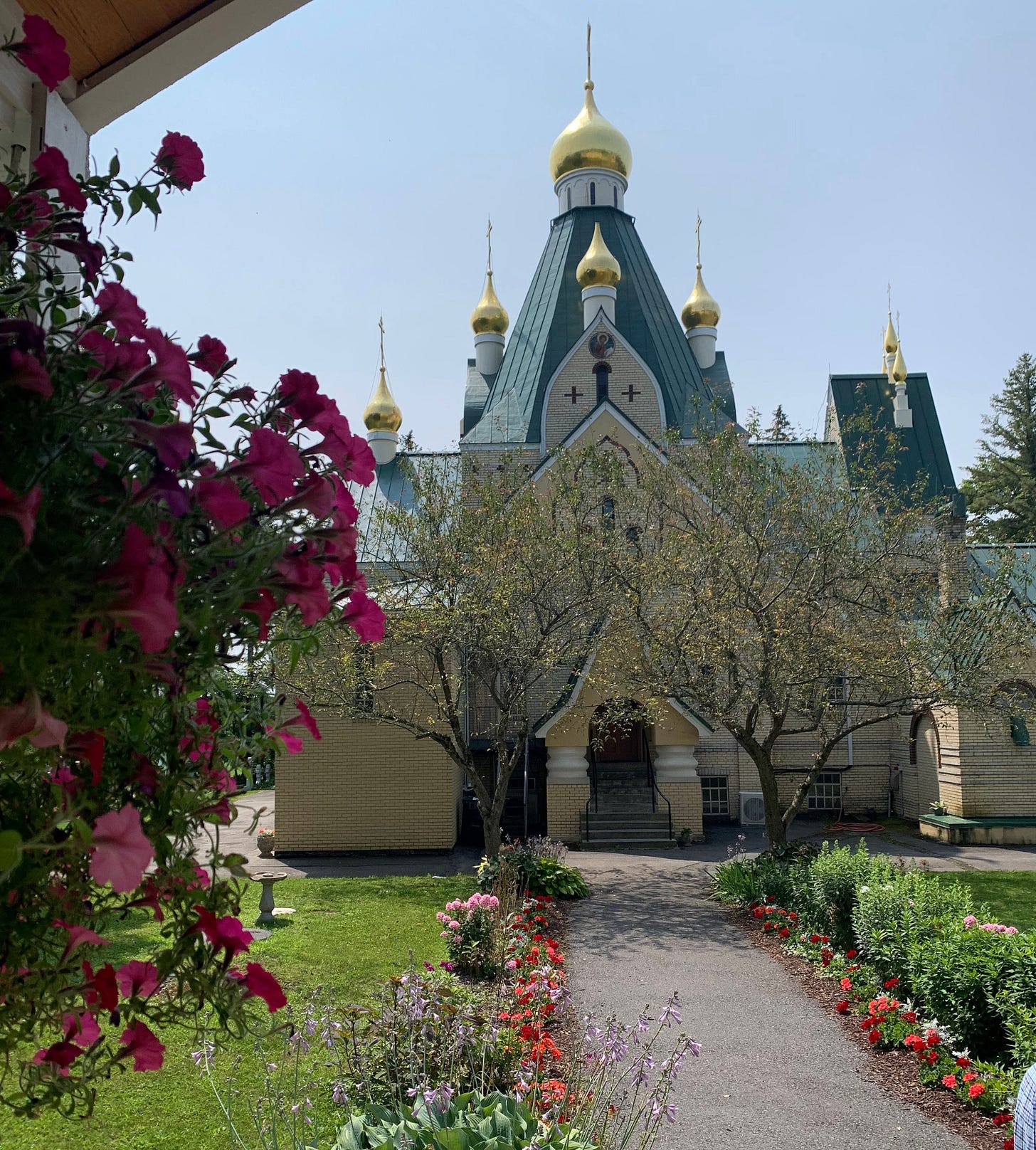
Because I converted for historical reasons, and not for personal gain, I could not have imagined how many overwhelming good things I encountered as a result of joining the Orthodox Church. Although I try not to write too many things which can be construed as negative, there are some facts which I must document. I mention these things with sincere intentions to explain some of the key differences I noticed in the spiritual fruits of Orthodox Christian people compared to others. I thought about remaining silent, but I decided that it is not right for me to hold back the conclusions of my many years of personal research just to avoid offending certain people who are unwilling to self-reflect on the problems within their own churches, which not only endangers the salvation of their own souls but also hinders many others whom they’ve ensnared in their nets. By writing these experiences, I hope to save people some time so that they don’t spend years of uncertainty trapped in sectarian confusion, as I was.
In Roman Catholicism, so much of my cognitive energy was wasted and consumed with frustration over daily news related to Pope Francis and modernistic bishops. The normal Mass for the majority of Roman Catholics would inevitably be filled with something “wrong,” like lay women handing out the Eucharist on the hand, and the cycle of demoralization was all-consuming. In Orthodox Christianity, everything is normal. Orthodox church services are always excellent, and if they lack anything, it is due to being short of money and manpower, not modernistic contempt towards things good and beautiful. Instead of me testing the Roman Catholic Mass to see if it’s done correctly, the Orthodox Divine Liturgy tests me to the core, with long services, prostrations, fasting, and deep prayers of repentance that require my heart and attention. Instead of having to actively seek out church friends and discerning whether they are modernistic or traditional, I now have people knocking on my door at coffee hour, teaching me about holy traditions and opening my mind to new heights of piety. In the Novus Ordo, I was usually the smartest man in the room. In Orthodox Christianity, I am the stupidest man, and I am constantly humbled and edified by the wisdom of people around me.
In the Orthodox Church, many simple aspects of “daily life” were shocking to me as a former Roman Catholic. Parishioners visited monasteries frequently and mentioned this habit casually in common conversations. People, even laity when a priest was absent, crossed their food and blessed it before eating. They drank holy water and anointed themselves with holy oil at home. They seriously abstained from meat not just on Fridays, but Wednesdays as well. Sunday services were long, with a similarly long Vigil on Saturday evening. People studied the Lives of the Saints, sometimes literally every day, and they would tell you at length about their favorite spiritual elders with great joy and happiness, even making pilgrimages to venerate relics, and discussing modern wonderworkers who reposed even in our own generation. Some even had stories of miracles, told to me in a pious and sober manner, not eager to overshare a sensational story, but humbly and quietly expressing their gratitude for God’s work in their own lives.
Some might think what I said applies only to crazy convert zealots, but many of these delightful people I am talking about were actually cradle Orthodox. I was shocked when on a few occasions, boomer aunties and grandmas came up to me and started dropping some serious redpills, or when a Russian lady living in Tokyo spoke with me in Japanese (she didn’t speak English) about her love for the American priest, Father Seraphim Rose.12 In Orthodoxy, I saw with my own eyes that the academic converts and the pious babushkas possessed the same mind and the same religion, which cannot be said for many other religions.
In Roman Catholicism, there seemed to be a great divide between people who were gentle and mild, yet very liberal when it came to faith matters, and others who were strict and conservative on the faith, and yet lacking in love and affected by anger. For that reason, I was greatly surprised when I saw how the most “traditionalist” and “zealous” Orthodox Christian people that I met were also filled with love and kindness. They spoke carefully and deliberately, watching their words and trying to genuinely measure themselves up to the standards of the Gospels. Rather than saying things like “That guy is a complete idiot and should be killed,” they would say “He was sadly mistaken when it came to that matter and we hope that he corrects his life.” Compared to secular people, Orthodox Christians genuinely seemed to have intellectual integrity and self-criticism, apologizing when they made mistakes and also humbling themselves when they speak to others.
I also found out that many people in the Orthodox Church had similar historical and geopolitical positions as me, which shocked me because many of my positions were ones that I had acquired with painstaking effort through independent learning, and which had often put me at odds with secular people and ordinary Roman Catholics. When it came to global affairs, I saw that American Orthodox Christians, far from being of one mind with the political parties of this era, possessed fairly nuanced views and were much more willing to admit the flaws of their own country, and they disavowed themselves from government actions which they viewed as immoral.13 In contrast, many Tradcaths seemed to mostly follow the party line of the American Republicans and Fox News and to take neoconservative headlines at face value. Rather than treating modern China as an evil boogeyman, Orthodox Christians were more sympathetic to the country and the particular struggles it faces — despite me almost never bringing up the topic. I truly did feel that the average Orthodox Christian believer is part of my “tribe,” and I was blessed to meet so many dear new friends through attending the divine services and coffee hours, including during my travels in East Asia.
Some Tradcaths will contradict what I have said by saying I didn’t experience “True Catholicism,” and that I need to do even more research before coming to a conclusion. Maybe I need to drive 420 miles away to see a once-per-month Special Latin Supreme Traditional Mass in order to discover true Catholicism. To this, I would respond that I was a faithful member of the Roman Catholic church for years, and I participated in its normal life in a western country, the United States. If True Catholicism is so hard to find, then perhaps the Supreme Papacy has failed. Meanwhile, I encountered the greater fruit of Orthodoxy with far less effort and with far less time spent searching. Orthodox Christianity, despite being smaller in population, newer to the American lands, and significantly weaker in financial status,14 with many priests struggling by having secular jobs outside of church, has vastly surpassed Roman Catholicism — including the SSPX15 and FSSP — in planting traditional churches across every state of the USA.
The End and The Beginning
After my long spiritual search, I am grateful to be part of the One, Holy, Catholic, and Apostolic faith of Orthodox Christianity, a source of wisdom and joy in my life that helped me to understand the meaning of a good life, the path towards self-mastery, and the cure for the problems of evil and death. It has been a journey of many ups and downs, and although I am very far away from many of the virtues that I seek to acquire, I hope that my experiences can be useful and valuable for others walking along the same path. Thank you!
If you liked, or really hated, this essay, please feel free to check out Part 1 (“Atheism”), Part 2 (“Tradition”), and Part 3 (“Christianity”).
Follow along with the discussion on Instagram, X/Twitter, and Reddit!
Notes on This Blog
Going forward, I will continue to write about topics related to Orthodoxy, Christian lifestyle, the modern world, atheism and its limitations, and East Asia. After this essay, which I deliberated on for quite some time, I expect to be able to write shorter articles more frequently. Please feel free to contact me (e.g., by commenting on this article or reaching out on Instagram or X/Twitter) if you have anything in particular you want for me to write about.
Many thanks to A. and N. for offering feedback on an earlier version of this essay.
Unfortunately, I realize now that there were many beautiful books that I loved, but since I read them in paperback format without creating electronic copies of my favorite quotes, many of those are probably lost to me forever.
I suspect this might be an American immigrant phenomenon. My Latin American friend informed me that when she converted to Orthodoxy, her grandma rejoiced to see that she had started attending a Christian church.
If “Byzantine Catholicism” actually exists, then it’s not wrong at all to call them “Papists,” since the only difference they claim to have from the Eastern Orthodox is their belief in Papal supremacy.
Regarding this analogy, it’s more like the “mother” went insane and started allowing her children to starve, and so the children are forced to search for food at their grandmother’s house. After all, even the Roman Catholics themselves acknowledge that the Orthodox Church is the more ancient faith, devoid of doctrinal development.
After becoming religious, I’ve come to regret my previous disdain towards emotional or miraculous conversions, since I now see that many great miracles really exist. Maybe God, in a way of rebuking me, hid away some of these good things in order to avoid filling me up with pride at an inopportune time.
Incidentally, one of my friends, who studied deeply for 2 to 3 years under the mentorship of a Roman Catholic bishop, told me that during his catechism, he was explicitly mandated to study Medieval Papal history but to specifically ignore the first 1000 years of the church, because “those details don’t matter.”
Source? Just trust me bro.
Some Tradcaths believe “If a bad Pope tries to make a false ex cathedra claim, God will strike him down.” But that is just an assumption that they are forced to believe as a consequence of papal supremacy, rather than a proof of the teaching itself.
I also happened to have a strong interest in Middle Eastern history and noticed that the Arabs referred to Europeans as “Franks” (Farangī) and the Byzantines as “Romans” (Rūm). Some of this language and historical awareness continue to this day in the Middle East, as I confirmed through contact with educated Arabs on the internet. I later found out that the pre-modern Chinese also referred to Portuguese Europeans as “Franks” (Fólángjī 佛郎機).
When I invited my anti-Orthodox, Tradcath friend to visit an Orthodox Liturgy just to check it out, he declined.
Patrick Craig Truglia also had some very valuable writings about this topic online.
She particularly enjoyed 未来の宗教 (Religion of the Future) and 死後の魂 (On the Soul After Death).
For the sake of symmetry, I’ll mention that the same can be said of some Orthodox Christians associated with China. But we are speaking English now, and there is no shortage at all of English-language journalism with critical words about this topic.
Orthodox priests in ROCOR do not benefit from a giant, globalized Papal financial infrastructure that provides them with subsidized housing, health insurance, and pension accounts.
The SSPX has ~160 parishes in the USA. The Orthodox Church has ~2,900 parishes in the USA. ROCOR alone has ~240 parishes in the USA.





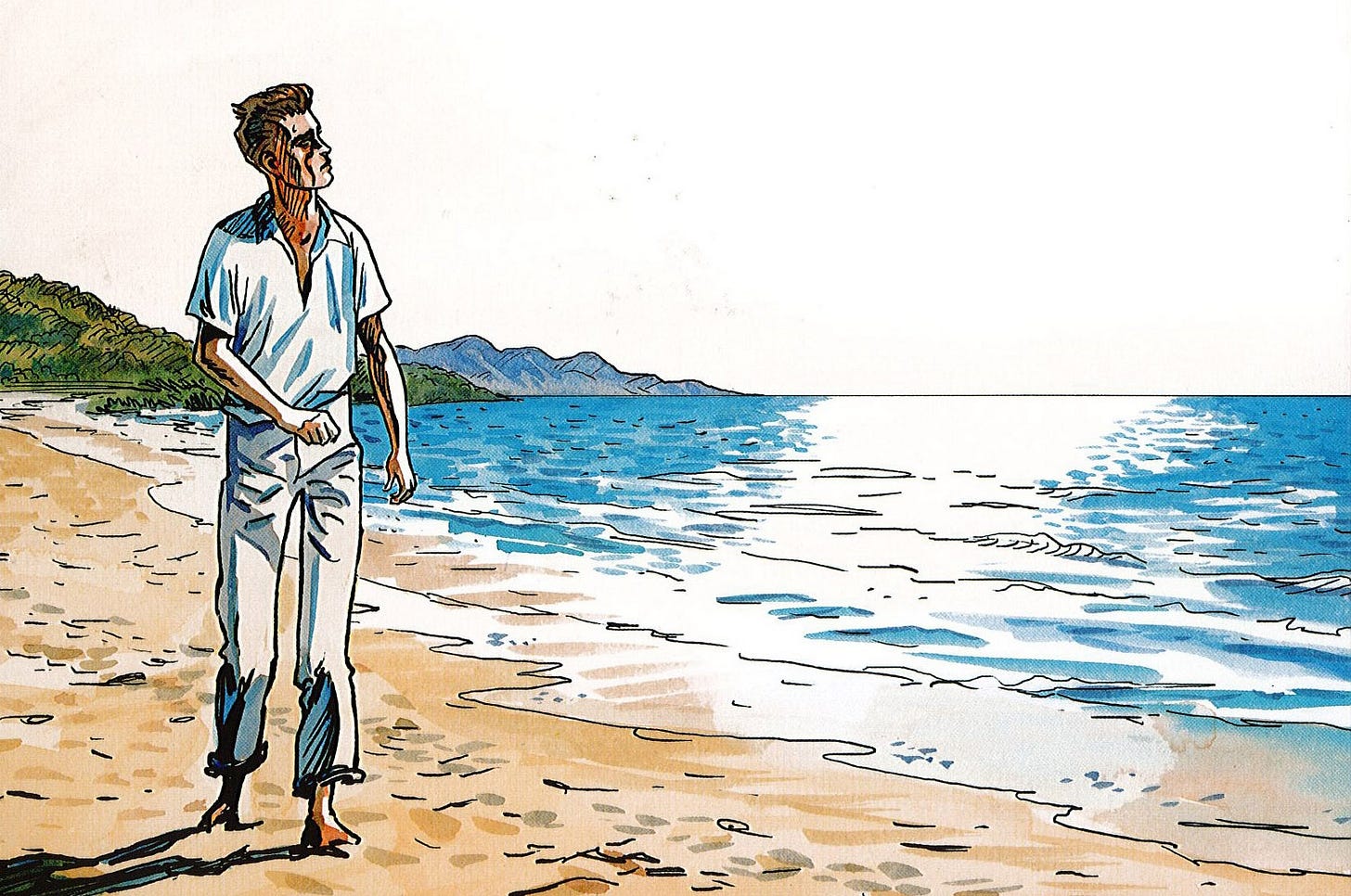
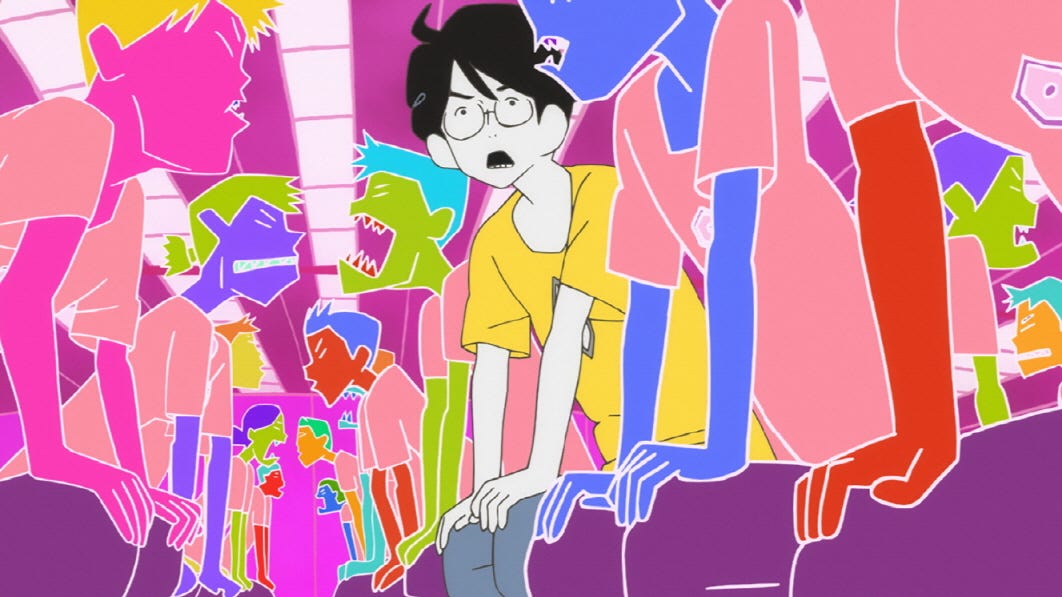
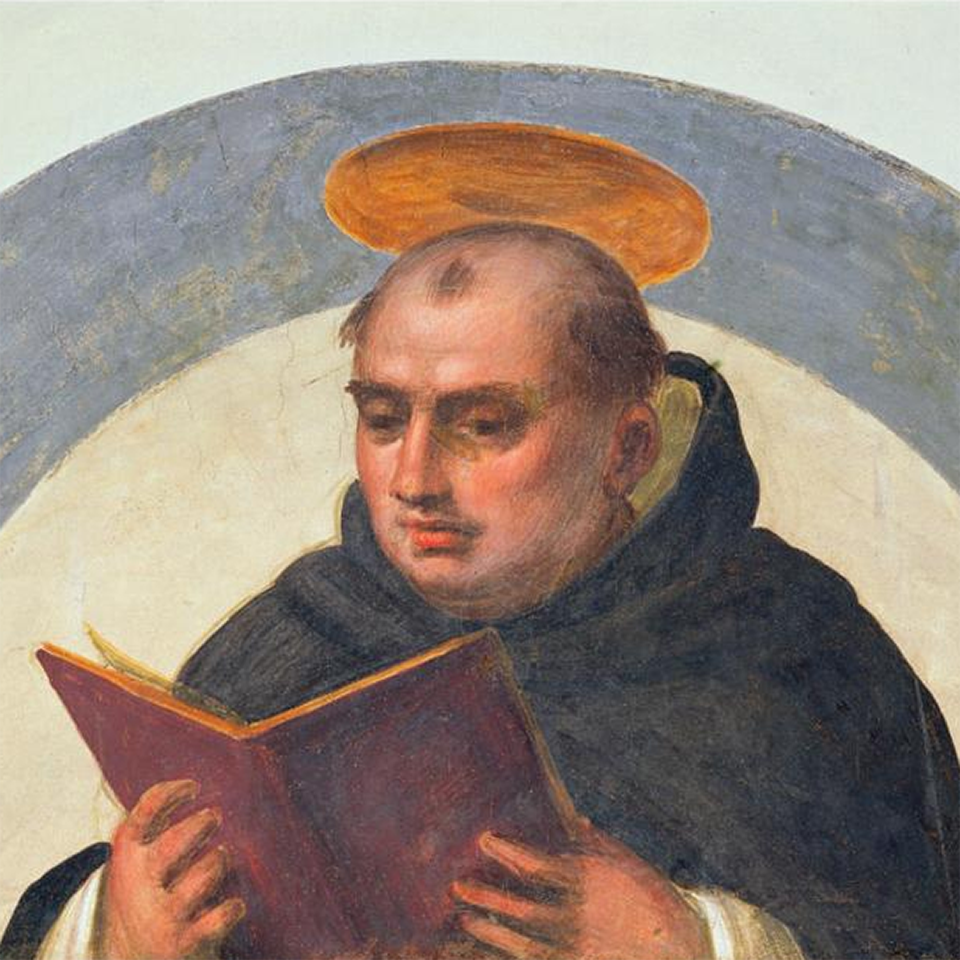
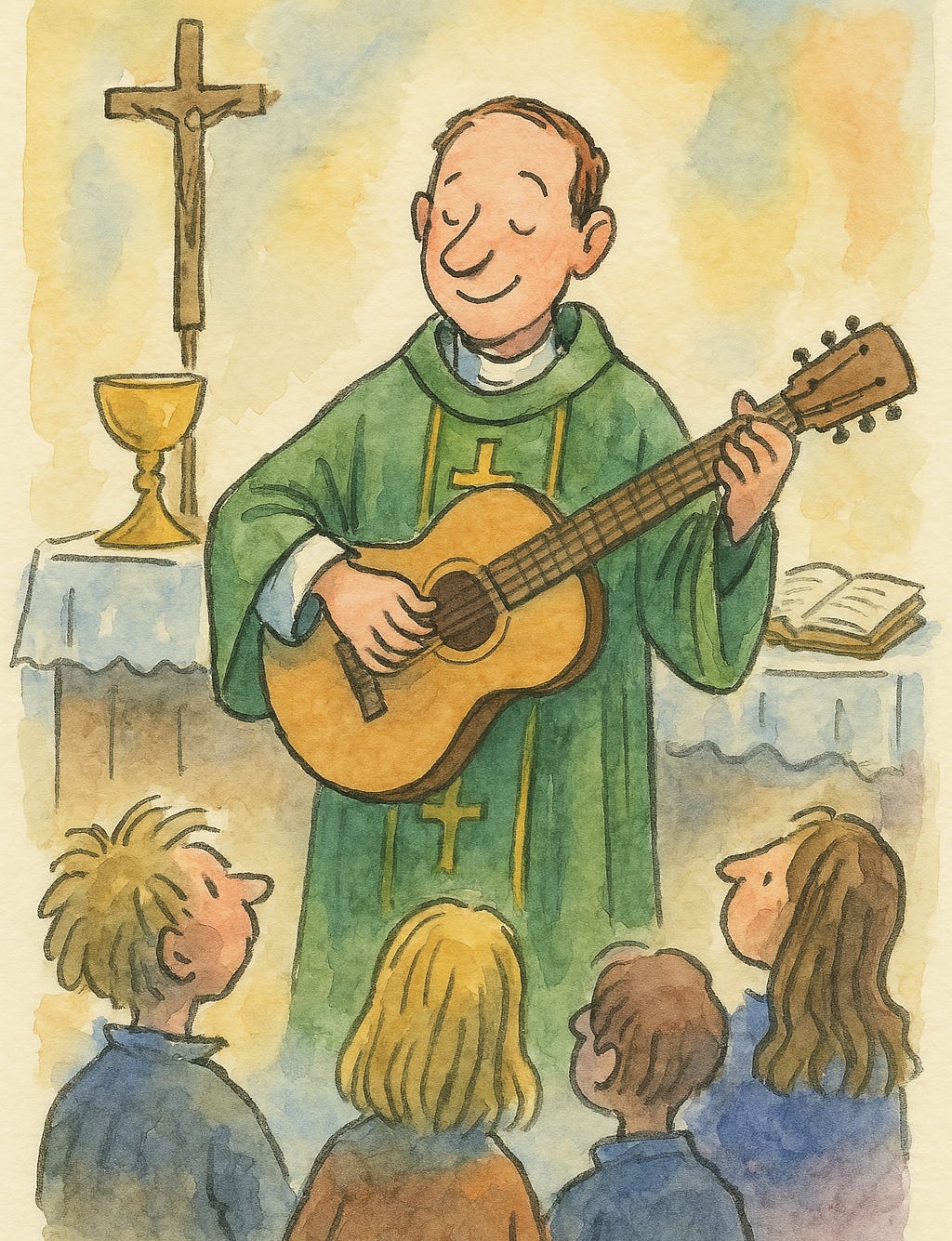
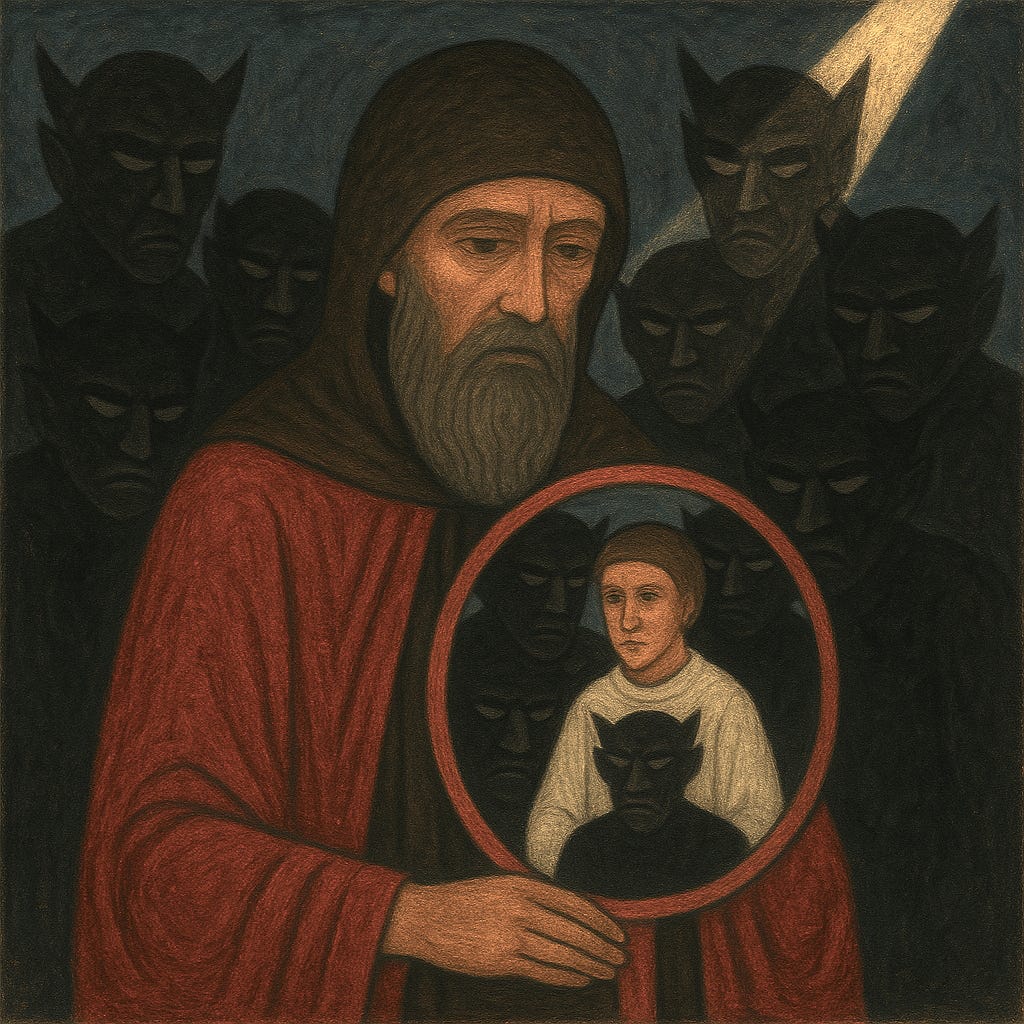
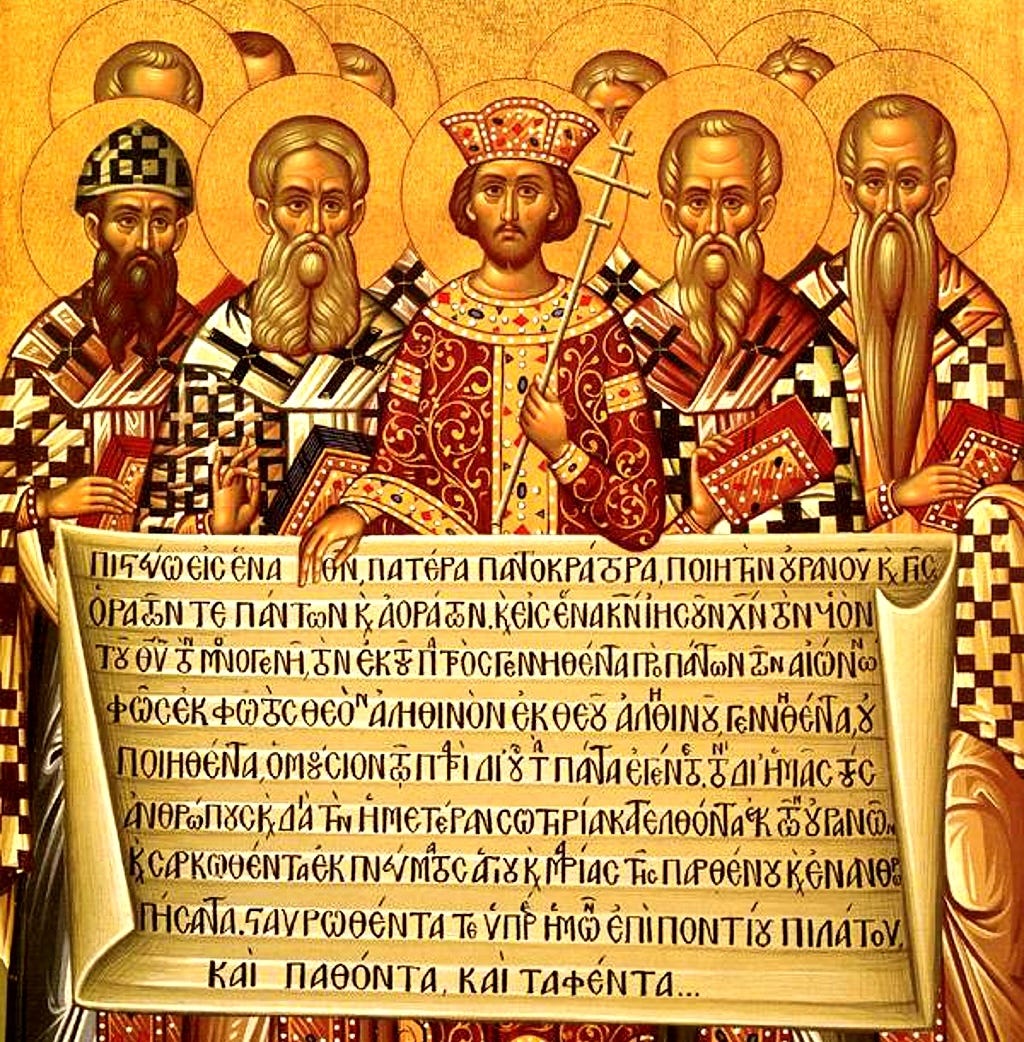
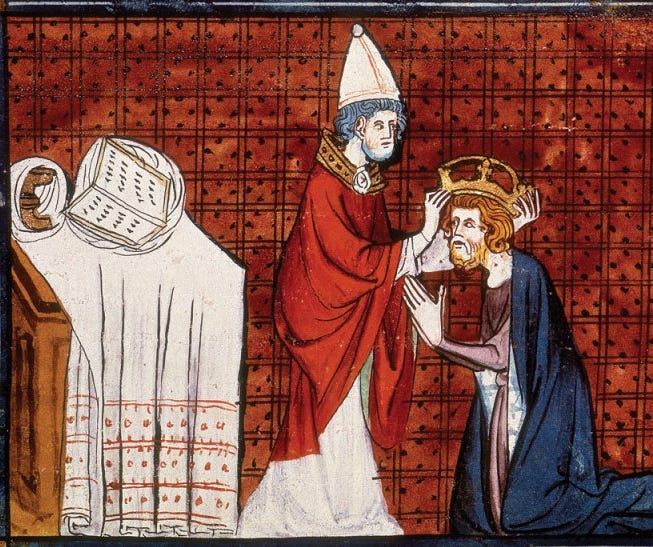
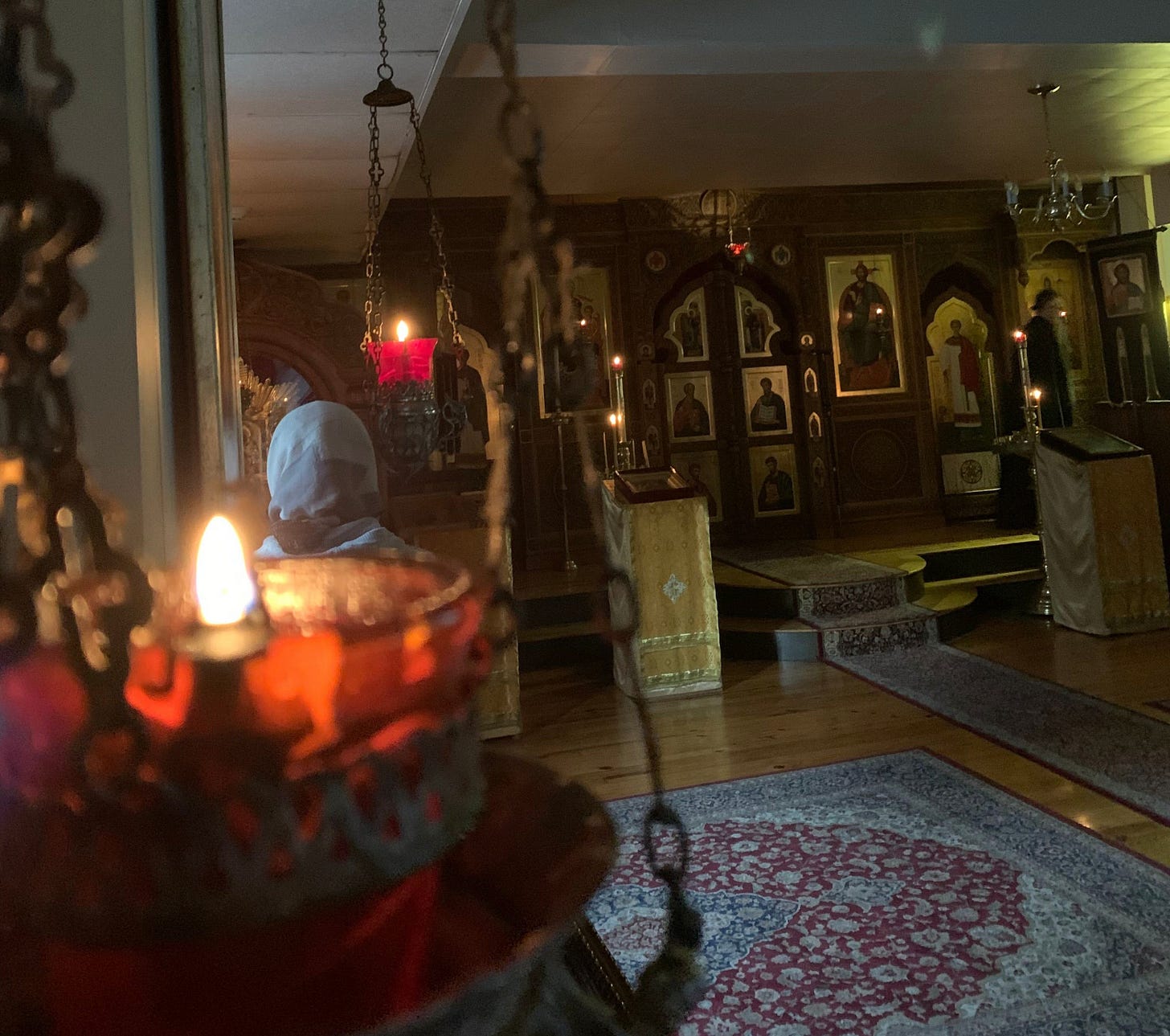
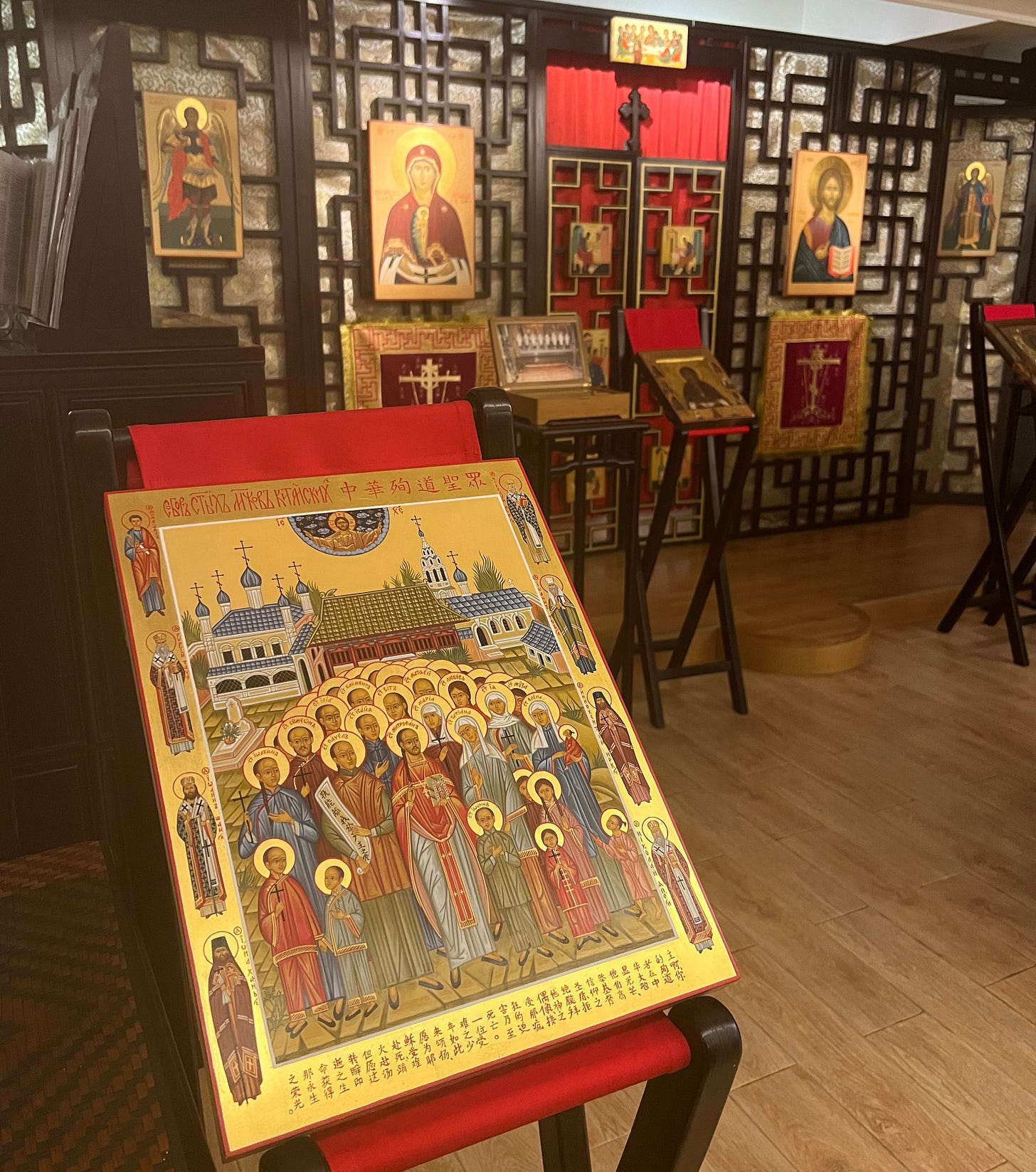
As a former Roman Catholic now Orthodox, I really appreciated this reflection. Definitely could sympathize with a lot of what you felt. Thank you.
Excellent Article!
One thing that always surprised me is how many more protestant converts I've encountered vs Roman Catholic converts to Orthodoxy so when I encounter one I always feel a special kinship.
I've been through a similar path.
Cradle Roman Catholic, Novus Ordo from around when I can remember. Left in my teens due to the general teenage rebelliousness, and being surrounded by nondenominational bapticostalists in the deep rural American South which caused an immense disdain for Christianity in general for many years.
Get politically "redpilled" early in 20s.
Started realizing there has to be a transcendent creator and more to reality than flat materialism. Go through the perennial-philosophe/neo-paganism in my early 20s realized much of that was atheism with more layers.
I study the history of music a bit in school and fall in love with early chant as the beauty is truly a productive of people who loved and believed in their God learn about Avignon and all the very inconvenient to Vatican I happenings of Roman Catholic history.
Tried going back to Rome via the trad->sede route as I get studied on the Vatican II things. Eventaully this nearly destroys my faith in God due to the insane sociopathic behavior in these fringe sects and the levels of gaslighting and Stockholm syndrome present as well as it being mostly an internet larp due to the trad movement being fractionally small in America. I remember screaming out for God one day that if His Church is real and it isn't all just a lie to please show me the way.
Less than 6 months later I meet someone through school (my now Godfather) who has just become Orthodox and he invites me to his chrismation. Start attending services at a small but beautiful OCA parish knowing nothing about Orthodoxy except what my grandma had said "they are us without the Pope."
Church is very small and they find out I have musical talent so I get asked to sing in the choir. After several months I can't quite put my finger on it but there is something very different about the theological focus in the hymns and service. Start studying to figure out if I'm imagining this or if there's a real difference here.
Read The Orthodox Church by Metropolitan Kallistos. Get to the part on St. Gregory Palamas and the Essence/Energies. Think that this actually makes more sense to reality than what I knew of Aquinan theology surprised this isn't what Rome teaches even though it's clearly based on pre schism saints. As well as the general Christus Victor focus as opposed to the penal and satisfaction views promenent in the west or as Fr. John Strickland would call it a "stavrocentric" (cross-centred) view.
This is especially apparent my first holy week.
Read the Triads and basically get one-shotted by the "Philosophy doesn't save" in the chapter title.
Study deeper many months pass into catechumenate read basically all of Blessed Seraphim of Platina and especially the "Orthodox Survival Course" it all completes the missing puzzle pieces of how modern western society ended up where it is currently. Eventually encounter the work of the absolute "boogyman destroyer of Frankish lies" Fr. John Romanides. His work on the Frankish history and on St. Augustine's speculative theology as well as how true theology is empirical and revealed really fills in the rest of the pieces.
While converting learn that my mother's side where the cradle Roman Catholic ancestry descends are from the latinized side of the Slovakian Carpathians Mountains and practiced many eastern style practices (crossing right to left, Pascha baskets, fasting before nativity, etc.) Grandma approves of my conversion and remembers visiting Orthodox churches when she was a young girl as she grew up in the Pennsylvania Coal region where nearly every town is like the Carpathian Mountains were dropped into the Eastern US. There's almost always an ethnic Roman Catholic parish, a uniate one (Ukrainian or Ruthenian) and Orthodox many which exist when St. Alexis Toth led his ministry to his people to return from the subjugated dhimmitude they suffered under the Catholic European powers.
Through very providential happenings both my father who was never Christian of any kind and mother (I never thought this would happen) both convert.